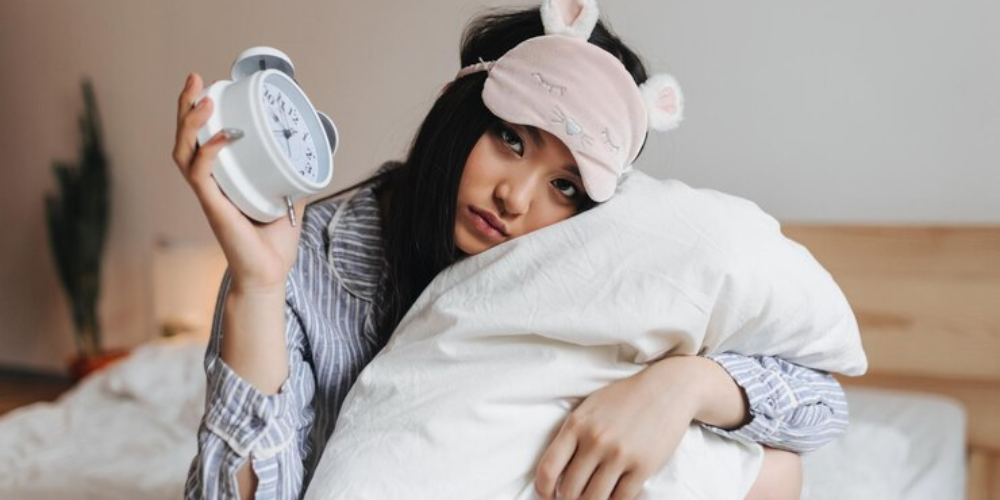
How to Fix Poor Sleep Hygiene for Better Rest

Sleep is a fundamental human need, as crucial for our well-being as a healthy diet and regular exercise. Yet, many people struggle to get a good night’s sleep, often due to factors within their control. Here’s where sleep hygiene comes in – a set of practices that can improve the quality and quantity of your sleep and address poor sleep hygiene.
Why is Sleep Hygiene Important?
Sleep hygiene encompasses both your sleep environment and daily habits. When practiced, it helps regulate your body’s natural sleep-wake cycle, also known as the circadian rhythm. This internal clock dictates feelings of sleepiness and alertness throughout the day.
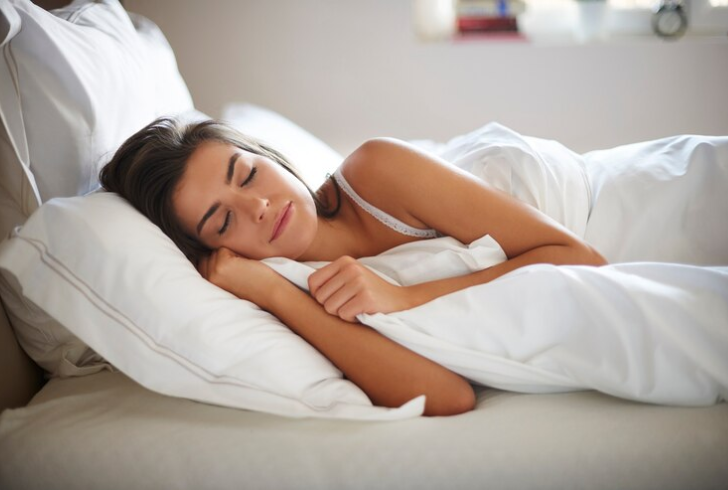
Freepik | gpointstudio | Good sleep habits involve both your sleep surroundings and daily routines.
Studies have shown that good sleep hygiene habits are central to health. like forming healthy eating habits, establishing positive sleep routines reinforces beneficial behaviors and makes quality sleep feel almost automatic. Poor sleep hygiene – erratic sleep schedules, stimulating activities before bed, and an uncomfortable sleep environment – can disrupt your sleep cycle and lead to a cascade of negative consequences.
These consequences can range from daytime fatigue and difficulty concentrating to a weakened immune system and an increased risk of chronic health conditions. Improving sleep hygiene is a simple and cost-effective way to promote better sleep and health.
Signs of Poor Sleep Hygiene
Several telltale signs indicate poor sleep hygiene. Here are some signs:-
- Struggling to fall asleep even after lying in bed for a long period.
- Waking up multiple times during the night and having trouble returning to sleep.
- Feeling unusually tired or sleepy during the day, affecting daily activities.
- Irregular sleep schedules, varying significantly in sleep duration and timing.
- Feeling unrefreshed and unrested upon waking up, despite an adequate amount of sleep.
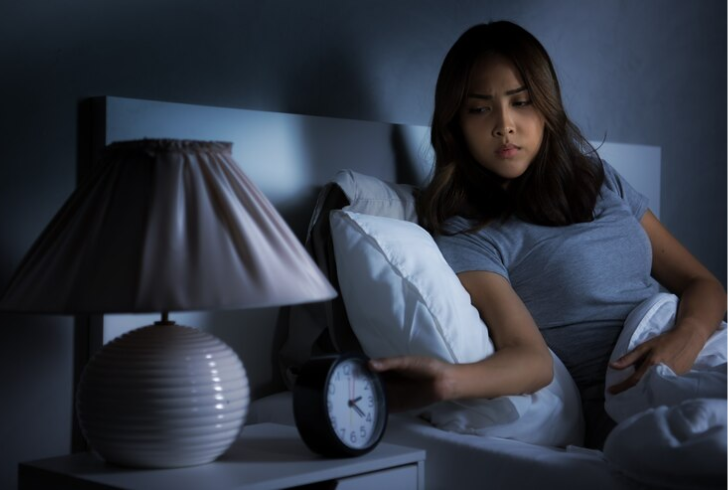
Freepik | amenic181 | Signs of poor sleep hygiene include trouble falling asleep and waking up often during the night.
How to Practice Good Sleep Hygiene
The good news is that you can harness the power of habits to cultivate better sleep. Here are some key strategies to improve your sleep hygiene:
1. Optimize Your Sleep Schedule
Consistency is key. Go to bed and wake up at roughly the same time each day, even on weekends. This helps regulate your circadian rhythm and prepares your body for sleep at bedtime.
2. Establish a Relaxing Bedtime Routine
Develop a calming pre-sleep ritual that signals to your body it’s time to wind down. This routine could include taking a warm bath, reading a book, or practicing relaxation techniques like meditation or deep breathing.
Avoid stimulating activities like watching television or using electronic devices for at least an hour before bed. The blue light emitted by electronic devices can suppress melatonin production, a hormone that regulates sleep.
3. Create a Sleep-Conducive Environment
Your bedroom should be a haven for sleep – cool, dark, and quiet. Invest in blackout curtains or an eye mask to block out light. Consider using earplugs or a white noise machine to cut noise disturbances. Ensure your mattress and pillows are comfortable and provide adequate support.
Cultivate Healthy Daily Habits

Freepik | Exercise improves sleep, but avoid intense workouts right before bed.
Certain lifestyle choices can impact your sleep quality. Here are some tips:
- Get Regular Exercise – Physical activity promotes better sleep, but avoid strenuous workouts close to bedtime.
- Manage Stress – Chronic stress can wreak havoc on your sleep. Practice relaxation techniques like yoga or meditation to manage stress.
- Limit Caffeine and Alcohol – While caffeine might give you a temporary energy boost, avoid it in the afternoon and evening as it can interfere with sleep. Alcohol may initially make you drowsy, but it disrupts sleep later in the night.
- Avoid Heavy Meals Before Bed – Opt for a light, healthy dinner a few hours before bedtime. A full stomach can make it difficult to fall asleep.
- Get Sunlight Exposure – Sunlight helps regulate your circadian rhythm. Aim for at least 30 minutes of natural light exposure each day.
Sleep hygiene is not a one-size-fits-all approach. Experiment with different strategies to find what works best for you. If you continue to experience sleep problems despite good sleep hygiene practices, consult a doctor to rule out any underlying medical conditions that might be affecting your sleep.
By prioritizing good sleep hygiene, you’re investing in your health and well-being. Sweet dreams!
More in Anti-Aging
-
`
How to Overcome Imposter Syndrome?
Imposter Syndrome is a familiar term many recognize as a psychological state where individuals doubt their accomplishments, fearing that others will...
June 27, 2024 -
`
Which Peptides Are Best for Anti-Aging?
For those seeking to combat the signs of aging and maintain a youthful appearance, the world of skincare can feel overwhelming....
June 18, 2024 -
`
Celebrities with Celiac Disease – Inspirational Stories and Struggles
Celiac disease is a serious condition, and even the rich and famous aren’t immune. Many celebrities have been open about their...
June 10, 2024 -
`
5 Easy & Effective Ways of Coping With Depression
Depression is more than just feeling sad or having a bad day. It is a pervasive mental health condition that affects...
May 30, 2024 -
`
Top 10 Practical 60th Birthday Ideas For Everyone
Turning 60 is a milestone worth celebrating! Whether you are planning your own bash or organizing a celebration for a loved...
May 24, 2024 -
`
What is the Meaning of Angelina Jolie’s Back Tattoo? Explore
If you have ever caught a glimpse of Angelina Jolie’s back tattoo, you might have wondered, “What is the story behind...
May 17, 2024 -
`
Chronic Heal Pain Can Be A Sign of Cancer – Here’s How You Get It Under Control
Have you ever wondered if that nagging heel pain was something more than just wear and tear? Is heel pain a...
May 11, 2024 -
`
When to Walk Away from Someone with Mental Illness – Signs and Strategies
Deciding when to walk away from someone with mental illness is a deeply personal decision that can be challenging to navigate....
April 30, 2024 -
`
Creatine & Muscle Growth: Everything You Need to Know
Can you take creatine without working out? Absolutely, you can! But if you are looking to enhance muscle growth, hitting the...
April 27, 2024


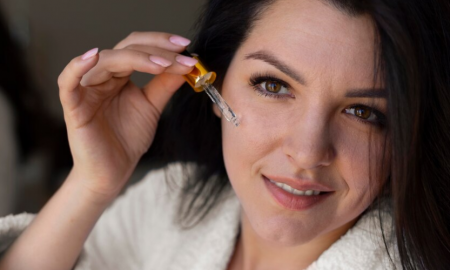




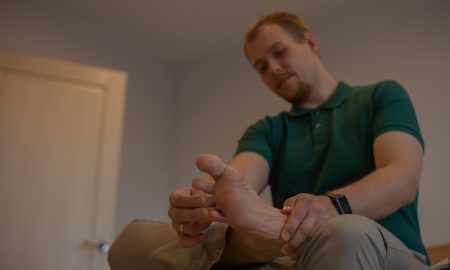







You must be logged in to post a comment Login